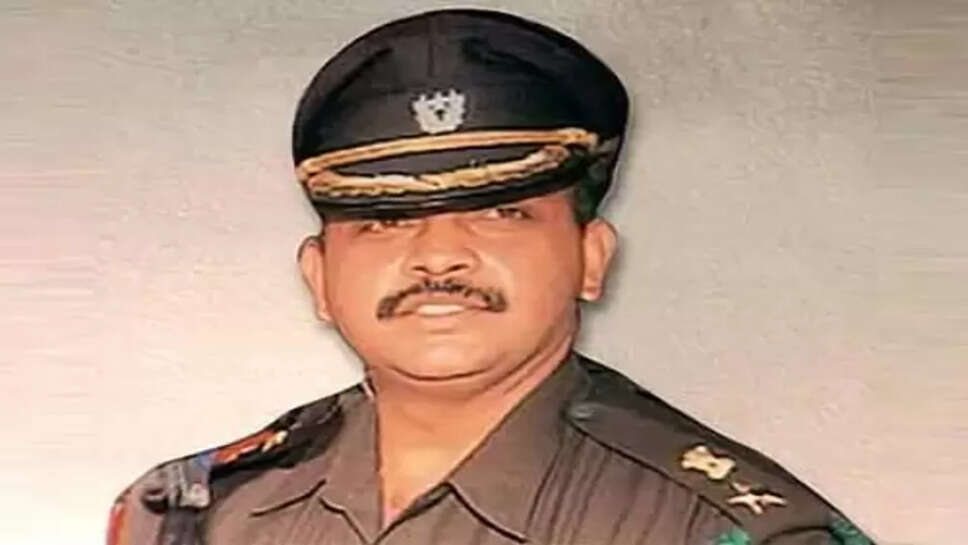Abhinav Bharat: From Revolutionary Roots to Legal Relief

The controversial right-wing outfit Abhinav Bharat, founded in the early 20th century by Vinayak Damodar Savarkar and later revived in the 21st century by Himani Savarkar, niece of Nathuram Godse, has issued a triumphant statement following the recent acquittal of key accused in the 2008 Malegaon blast case. The group, often associated with aggressive nationalism and shadowy militant leanings, claimed that the verdict has "vindicated the ideological and moral stand" it has long taken in the face of accusations of terror.
A Long-Awaited Verdict
The special National Investigation Agency (NIA) court in Mumbai, in a much-anticipated ruling, acquitted all seven accused in the 2008 Malegaon blasts case, citing lack of concrete evidence and serious lapses in the investigation. The verdict comes after over 15 years of legal proceedings, in which the initial arrests and charges were marred by shifting narratives, political interference, and allegations of bias.
For Abhinav Bharat, this decision is not just legal relief but a symbolic exoneration. In a press statement, the group declared, “The so-called ‘Hindutva terror’ tag was a political fabrication aimed at defaming nationalist forces. This verdict proves it.”
The Historical Roots of Abhinav Bharat
Founded in 1904 by Vinayak Savarkar and his brother Ganesh, Abhinav Bharat was originally a secret revolutionary society aimed at overthrowing British rule. It played a notable role in early nationalist activities but was disbanded after independence, as revolutionary violence gave way to constitutional politics.
In 2001, Himani Savarkar — a descendent of the Savarkar-Godse family — revived the group, positioning it as a cultural and nationalist organization. However, its name re-emerged in 2008 when several of its alleged associates, including Lt. Col. Prasad Purohit and Sadhvi Pragya Singh Thakur, were arrested in connection with the Malegaon blast that killed six and injured over 100 during the holy month of Ramadan.
Despite initially being linked to Abhinav Bharat, most accused later distanced themselves from the organization, and even the group itself claimed it was being made a scapegoat by investigating agencies.
Controversies and Courtroom Drama
The Malegaon case became a lightning rod for political and ideological debates in India. The initial investigation led by Maharashtra’s Anti-Terrorism Squad (ATS) named Hindu nationalist individuals as conspirators, prompting accusations of “saffron terror” from some political quarters. The subsequent probe by the NIA saw some of those allegations weakened or dropped, leading to claims that the case was being derailed under political pressure.
Over time, key witnesses turned hostile, and forensic evidence was found to be unreliable or improperly collected. Defense lawyers argued that the entire investigation was tainted by bias, and that the accused were held without sufficient proof for over a decade.
The acquittal has thus not only shaken public trust in investigative institutions but has reignited the debate over the politicization of terror cases in India.
Abhinav Bharat's Reaction: ‘A Moment of Justice’
In its reaction, Abhinav Bharat’s spokesperson stated:
“This is not just a verdict in favor of the accused, but a warning to those who weaponize state agencies against ideological opponents. Nationalists have always stood by the truth, and that truth has now been upheld.”
Himani Savarkar, who passed away in 2015, had long maintained that her revival of Abhinav Bharat was purely cultural and patriotic in intent, and had vehemently denied any involvement in violent acts. Nonetheless, the organization's image suffered due to repeated media associations with terror activities, leading to long-standing reputational damage that members claim is now slowly being repaired.
The Political Overtones
Reactions to the verdict and Abhinav Bharat’s response have been mixed across the political spectrum.
-
Right-wing groups celebrated the judgment as a “victory against fake narratives”.
-
Opposition leaders and civil society members, however, raised concerns over delayed justice and questionable investigation reversals, wondering how such serious charges could evaporate after years of prosecution.
-
Some legal experts have called for a review of the functioning of both the ATS and the NIA, pointing to a need for structural reform in how terrorism-related cases are investigated.
While Sadhvi Pragya has gone on to become a Member of Parliament from Bhopal, Lt. Col. Purohit was reinstated in the Army after being granted bail. Both have vocally maintained their innocence and have hinted at plans to take legal action against investigators for wrongful incarceration.
A Symbolic Turnaround
For Abhinav Bharat, which had become virtually dormant after the arrests, this ruling could be an opportunity to resurface in public discourse, albeit cautiously. The group has not announced any immediate plans to relaunch active operations or expand its influence but has called on nationalist groups to unite under a “reclaimed narrative of truth and honor.”
However, analysts warn that the acquittal does not necessarily imply the absence of wrongdoing, only that guilt was not proved beyond reasonable doubt — a nuance often lost in polarized public debates.
The Victims’ Side Still in Pain
For families of those killed in the 2008 blast, the acquittals have come as a fresh blow. Many expressed frustration that justice has not been delivered, and that years of waiting were in vain.
One survivor remarked: “If no one is guilty, then who planted the bomb? Who killed my brother? That answer still hasn’t come.”
Their voices are a stark reminder that legal conclusions may not always satisfy emotional and social expectations of justice, especially in terror cases that carry deep communal and political overtones.
Vindication or Void?
The Malegaon blast case’s conclusion has left more questions than answers. For Abhinav Bharat and its sympathizers, it represents moral and ideological validation after years of vilification. For critics and victims’ families, it highlights the failures of law enforcement and the fragility of the judicial process in politically sensitive cases.
Whether Abhinav Bharat attempts to reassert itself or remains in the background, the Malegaon acquittals will likely be seen in history as a landmark moment in the contentious intersection of law, ideology, and politics in India.
